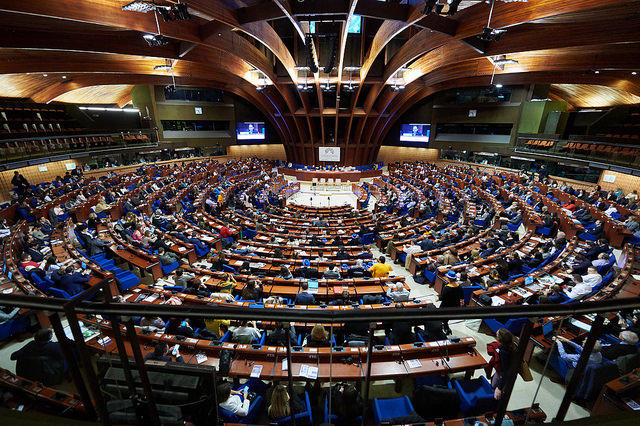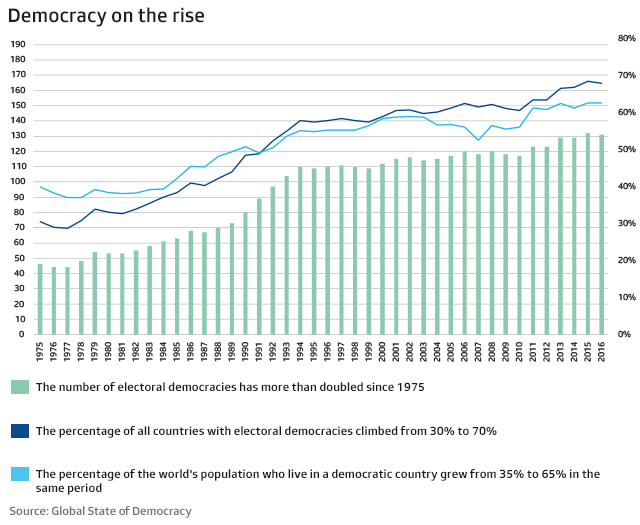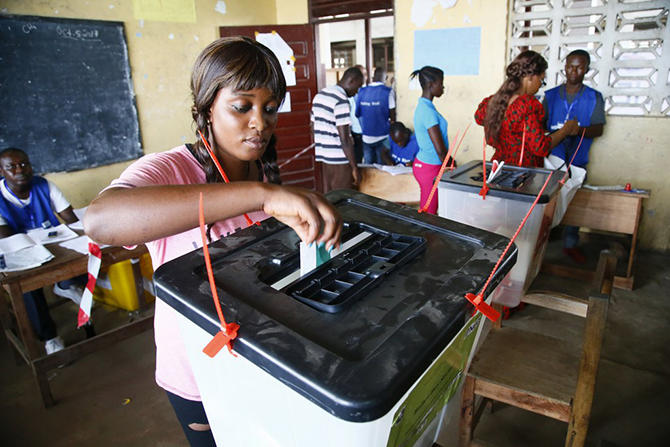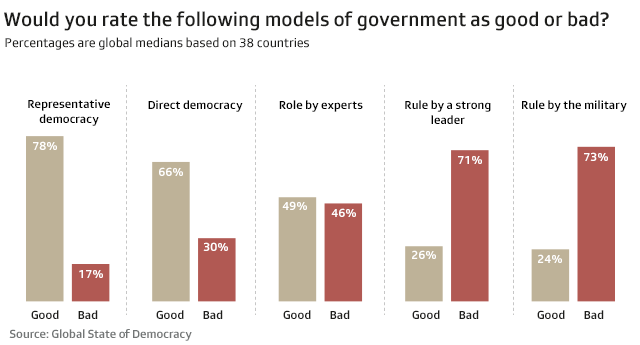
Despite recent setbacks, democracy is winning

Erdoğan and Hungary, populism and rigged elections: recent political events seem to suggest that democracy is in for troubled times. But the latest global research shows the opposite is the case, and most people want more opportunities to have a say.
Despite a population of a mere 270,000, Strasbourg nevertheless became the world capital of democracy this November. With more than 1,000 participating experts from over 100 countries around the world, the World Forum for DemocracyExternal link, held annually in the French city, has become one of the most important global conferences on democracy.

More
Around the world in 200 days for people power
This year, the Forum’s focus was on democracy’s weaknesses. “Populists of various political colours are a threat to our liberal and pluralistic societies.” These were the opening words of the host, the Secretary General of the European Council, Thorbjörn Jagland. He and many other participants warned of a “democratic retreat”, referring to recent developments not only in countries such as Turkey and Hungary, but also in the US and the UK.
But is democracy really in dire straits? Is it true that people are less interested in democratic principles? Three separate and in-depth surveys conducted by renowned researchers and institutions have shown that, globally speaking, democracy is still going strong – it is even gaining in popularity.
“There are hardly any reasons to be pessimistic,” emphasised former Belgian prime minister Yves Leterme. He has been managing the “International Institute for Electoral Assistance and Democracy” (IDEA) in Stockholm since 2014.
IDEA, a government organization, is made up of 30 member states from across the globe, including Switzerland. In Strasbourg, Leterme presented the first edition of its “Global State of DemocracyExternal link“. The new annual publication has found that while in 1975 just 30% of the world’s population lived in democracies in 46 countries, by 2016 the figure had climbed to 68% across 132 countries.

From Tunisia to Thailand
Data from the “Varieties of DemocracyExternal link” (V-Dem) project, which scrutinised almost 180 states, is even more precise. More than 100 experts collected 18 million different data-points on various aspects of democracy, such as the application of direct democracy tools and the population’s engagement in political life.
The results? The first V-Dem annual report indicates that democracy has gained in Tunisia, Sri Lanka, Burkina Faso, Georgia and Guyana, while it has lost ground in countries such as Thailand, Poland, Turkey, Brazil and the Maldives. All in all, “we cannot really talk about a global decline of democracy,” according to V-Dem director Staffan Lindberg.

In fact, the contrary is the case. A third study on democracy shows that many people actually want more of it. This is a conclusion by the PEW Research Center in the US, which analysed global attitudes towards democracy in 38 nations, excluding Switzerland.
“Globally, there is a broad support for representative and direct democracy,” emphasises Richard Wike, director of the global attitudes research project. In concrete terms, some 78% of respondents were in favour of representative governments, while 66% wanted to have a say in politics via direct democracy.
However, the survey also established that many people see a positive side to non-democratic systems, such as governments led by experts, strongmen, or the army. Overall 23% of respondents turned out to be ‘committed democrats’, while 47% described themselves as being in favour of democracy while also seeing some advantages in non-democratic systems. Some 13% felt more comfortable in a non-democratic country.

Translated from German by Billi Bierling, swissinfo.ch

In compliance with the JTI standards
More: SWI swissinfo.ch certified by the Journalism Trust Initiative

























You can find an overview of ongoing debates with our journalists here . Please join us!
If you want to start a conversation about a topic raised in this article or want to report factual errors, email us at english@swissinfo.ch.